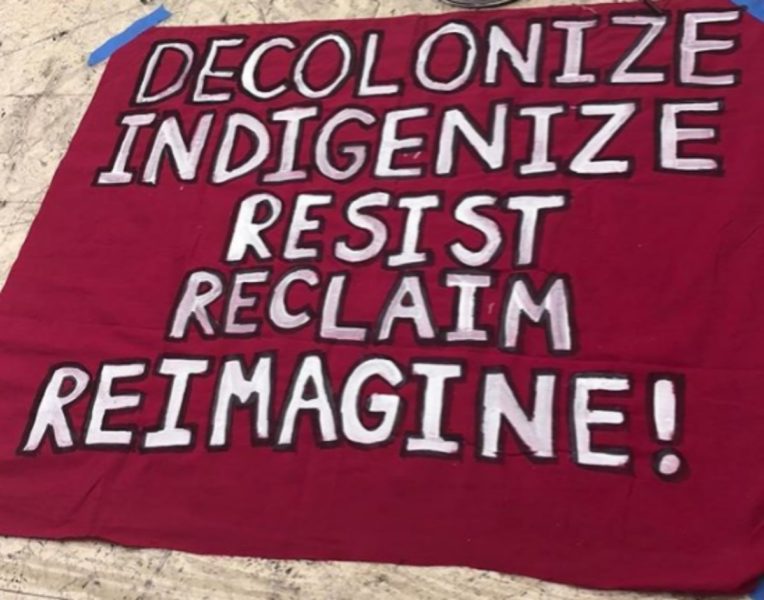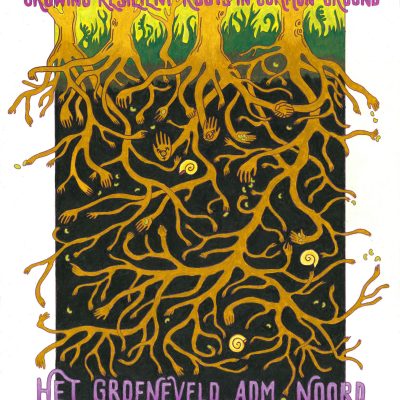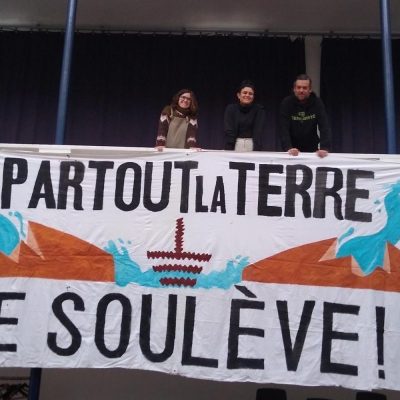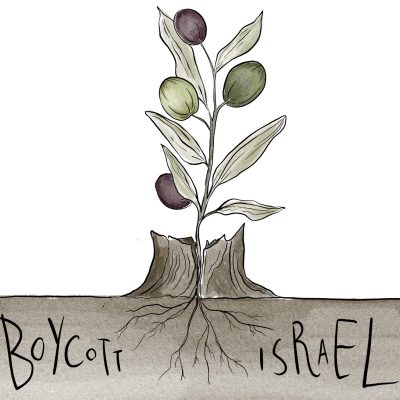
In this reading group we continued the discussion around degrowth, this time with a particular focus on avoiding neo-colonial practices within a degrowth framework. As the term degrowth is invented in Europe, and lots of people want to spread this concept : “Are we once again setting the global agenda, thereby producing long-standing asymmetries?” (C. Dengler & L. M. Seebacher, 2019). How can degrowth function both as be used an umbrella term, connecting different ideologies/strugges over the globe to fight capitalism, but at the same be decolonial and therefore not centering its Eurocentric agenda was an important question that was been asked in this reading group. As is argued by Denglera &Seebacher we found it important to acknowledge the different similar ideologies/practices of degrowth which are not originated in the global north such as post-extractivism, buen vivir, ubunto and ecological democracy and not treat degrowth theory as the basis for the all, but more as a supplement. “an intersectionalpower-sensitive perspective is required to decidedly not pre-imposeready-made solutions on different contexts”. Different contexts experience different struggles and therefore it immportant to acknowledge its difference. As Nikita Dhawan’s metaphore says “though we might be facing the same storm, we are not all in the same boat”. Yet we all share a shared basis of resisstance and in connecting with different groups together we are maybe able to fight this storm more strongly all together.
Further we got on to the topic of the global north ‘setting house first’. We were wondering whether people in the global south would lose their jobs in all kind of export industries due to a reduced demand of resources and products from the global north. A striking example of how economic decisions can have potentially damaging impacts on the global south is the 1993 US Child Labour Boycott in Bangladesh. Around 55000 children lost their job, most of them ended up in the informal sector, having worse working conditions and less payment than those children still working in the garment industry. This shows how important it is to acknowledge different realities when taking actions. An impulsive, western reaction towards child labour, may be banning this kind of labour as it does not fit into our reality. Yet without providing an alternative, this can do more harm than good. In this case it needs to be acknowledged that child labour is structurally embedded within the system, there is an existing dependence that makes it impossible to ban from one night to the other. However, we also agreed that comparing a degrowth transformation in the Global North to a child labour boykott is a weak analogy. A degrowth transformation happens slowly, bottom up with a holistic approach anticipating and hence trying to avoid potential negative impacts. Whereas a boycott is radical, overnight, top down, imposed upon another industry / nation, thus not exactly comparable. We discussed that it is thus important to really try to understand and fight the root of the problems around such issues, before trying to fix it (and displace the problem) and therefore be more critical about ‘quick’ solutions such as boycotting.
In one of the articles the development of the Zapatista movement is described and used as a form of communicating degrowth. Most of us enjoyed this alternative way of learning about activism, strategies for change and degrowth. It was somewhat refreshing to leave the academic jargon and enter a world of dreams and stories. At the same time, it became very obvious how easily we tend to romanticise those kind of ways of living. This is especially problematic if the way of living of Zapatista is romanticised by western authors, not acknowledging the years of hard work underground development, an armed conflict leading to deaths of people on both sides of the conflict and continuous oppression by white folks and the mexican government. Again, it emphasizes how striking it is to realize that we do not live in a one world world. We need to acknowledge the different worlds we are living in. There is not one form of knowledge, one form of living, one form of organizing a society. Multiple worlds require multiple answers to the many challenges we face, rooted in colonialism and capitalism. Therefore, we need to remember that we can get inspired by different movements and their ways of living a degrowth society, but that degrowth practices in western Europe may require entirely different actions from a degrowth movement in Mexico.
Readings
Decolonizing degrowth in the post-development convergence: Questions, experiences, and proposals from two Indigenous territories
What About the Global South? Towards a Feminist Decolonial Degrowth Approach








